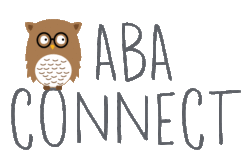PCIT is a behavioral parent training program for children age 2 through 6 years old. It can also be implemented with slightly older children with intellectual or other developmental delays. PCIT helps caregivers learn effective strategies for addressing challenging childhood behaviors such as non-compliance, frequent loss of temper, aggression, separation anxiety, irritable mood, argumentative behavior, tantrums, and difficulties with cooperative play skills.
It is important to know that the procedures used in PCIT are based on well-researched behavior principles. During phase one of the treatment, caregivers will learn how to interact more effectively with their child to increase prosocial skills such as joint attention, play skills, and social communication. Phase two of the treatment includes parent coaching on how to give effective instructions to increase child compliance and education about research-based discipline strategies.
What Happens During PCIT?
First,
Dr. Mariel Cannady will meet with the parents (or other caregivers) to identify concerns and determine whether PCIT or another parent training program is appropriate. If PCIT is appropriate, Dr. Cannady will conduct a play-based, baseline assessment. Next, a meeting will be scheduled to review the baseline assessment and to provide direct instruction of behavior management skills through explanation and rationale of each strategy, modeling, and role play. After the parent instruction session, parents will receive live coaching through an in-the-ear device while the parent is playing with their child. This live coaching occurs with observation using a one-way mirror. Treatment progress will be determined through direct observation during each session in clinic and caregiver report of behavior in other settings.
Treatment Outcomes
Children and families who participate in weekly sessions are able to benefit most from treatment. PCIT has been shown to significantly reduce caregiver stress, improve the parent-child relationship, and decrease challenging behaviors. When parents practice the skills at home, treatment is most effective and progress is achieved more quickly.
Parents can expect to participate in approximately 16-20 sessions at the
South Austin location. Treatment progress and completion of the full program is dependent upon several factors including caregiver mastery of skills and appropriate management of the child’s behavior in the clinic and other settings in the community.]]>

